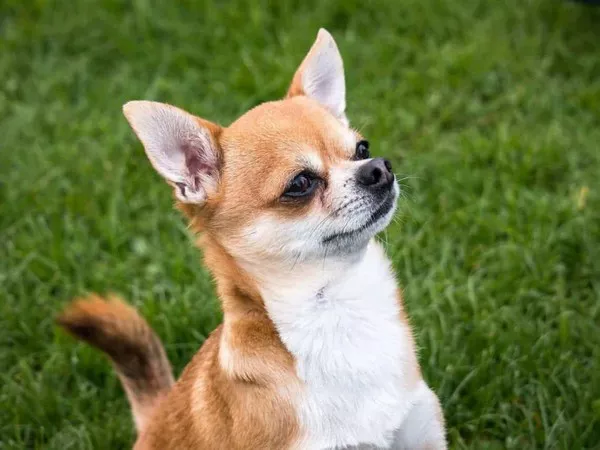When it comes to training a Chihuahua, a breed known for its intelligence and strong-willed nature, employing the best methods is crucial. This comprehensive guide will explore the best way to train a Chihuahua, emphasizing the importance of mental stimulation, covering essential commands, and offering insights into effective handling techniques. With patience and consistency, you can nurture a well-behaved Chihuahua companion that enriches your life.
The Best Way to Train a Chihuahua
The best way to train a Chihuahua is through patience and positive reinforcement. Chihuahuas respond well to positive reinforcement techniques, such as treats, praise, and play. Patience is key, as these small dogs can be sensitive and may take a bit longer to grasp commands. Avoid harsh training methods, as Chihuahuas are known for their spirited personalities, and a positive approach fosters a stronger bond between you and your furry friend.
Improving Mental Stimulation
Improving mental stimulation is crucial for Chihuahua training. These small dogs are not just physically active but also highly intelligent. Engage your Chihuahua’s mind through interactive toys, puzzle games, and regular training sessions. Mental stimulation not only prevents boredom but also helps burn off excess energy, leading to a more focused and trainable Chihuahua. Consider introducing new challenges gradually to keep their minds sharp and stimulated.
What to Teach Your Chihuahua?
Teaching your Chihuahua essential commands is foundational for a well-behaved companion. Start with basic commands such as sit, stay, and come. These commands are not only practical but also contribute to the safety and harmony of your household. Gradually progress to more advanced commands like lie down, roll over, and shake hands. The key is to break down each command into small, manageable steps, reinforcing positive behavior with treats and praise.
How to Handle Your Chihuahua
Handling a Chihuahua requires an understanding of their bold personality. Despite their small size, Chihuahuas often carry themselves with confidence. When handling your Chihuahua, approach them gently and with a calm demeanor. Avoid sudden movements or loud noises, as these can startle them. Socialize your Chihuahua from an early age to ensure they are comfortable around people, other dogs, and various environments. A well-socialized Chihuahua is more likely to be well-behaved and adaptable.
Crate Training
Crate training is an effective way to provide your Chihuahua with a safe and secure space. Chihuahuas, like many dogs, have a natural denning instinct and often appreciate having their own cozy space. Introduce the crate gradually, associating it with positive experiences such as treats and comfort. Use the crate for short periods initially, gradually increasing the time as your Chihuahua becomes accustomed to it. Crate training is particularly useful for housetraining and keeping your Chihuahua safe when you’re not around.
Leash Training
Leash training is essential for a Chihuahua, ensuring controlled and enjoyable walks. Use a lightweight leash and harness to avoid strain on their delicate necks. Begin with short walks in a quiet environment, allowing your Chihuahua to get used to the sensation of being on a leash. Encourage loose-leash walking by rewarding them with treats for walking beside you without pulling. Consistent and positive leash training will make walks a pleasant experience for both you and your Chihuahua.
Socialization
Socialization is a key aspect of Chihuahua training. Expose your Chihuahua to various experiences, people, and environments from a young age. This exposure helps prevent fearfulness and aggression towards unfamiliar situations. Arrange playdates with other friendly dogs, introduce them to different sounds, and encourage positive interactions with people of all ages. A well-socialized Chihuahua is more likely to be confident and well-behaved in diverse situations.
Addressing Behavioral Challenges
Chihuahuas, with their strong personalities, may present behavioral challenges during training. Common issues include stubbornness, excessive barking, and possessiveness. Identify the root cause of the behavior and address it accordingly. Positive reinforcement for desired behavior, redirection, and consistent training sessions can help correct behavioral challenges. Seek professional guidance if needed, as a certified dog trainer can provide tailored strategies for your Chihuahua’s specific issues.
Health Matters
A healthy Chihuahua is more receptive to training. Schedule regular veterinary check-ups to monitor their overall health and address any potential issues early. Provide a balanced diet tailored to their size, age, and activity level. Chihuahuas can be prone to dental issues, so include dental care in their routine, such as tooth brushing or providing dental chews. Good health contributes to your Chihuahua’s well-being and enhances their ability to engage in training sessions.
Consistency is Key
Consistency is paramount when training a Chihuahua. Establish a routine and stick to it, providing your Chihuahua with a sense of structure and predictability. Consistent commands, rewards, and expectations create a stable learning environment. Ensure that all family members use the same commands and reinforcement techniques to avoid confusion. Consistency reinforces positive behavior and helps your Chihuahua understand what is expected of them.
Conclusion
In conclusion, effective Chihuahua training involves a combination of patience, positive reinforcement, mental stimulation, essential commands, proper handling, crate training, leash training, socialization, addressing behavioral challenges, prioritizing health, and maintaining consistency. By approaching training with dedication and a positive mindset, you can unlock the full potential of your Chihuahua, fostering a well-behaved, happy, and fulfilling companionship.


